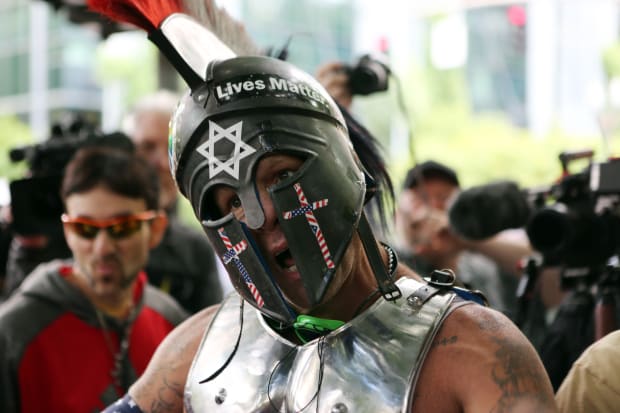



Her prophecy was rendered visible with the events of Charlottesville. It was, however, brought to wider attention by Sierra Lomuto, who wrote a prescient piece not long after the November 2016 election reminding medievalists to consider the ethics of studying the Middle Ages in an era of resurgent white nationalism. Focusing on my own particular area of expertise, we must first acknowledge that the contemporary white supremacist fascination with the European Middle Ages did not by any means begin with the events of Charlottesville. The issues to be unpacked here are manifold. This was the impetus for the panel I organized for the upcoming 2019 AHA annual meeting in Chicago- jointly presented with the MLA annual convention-bringing together historians and literature scholars, medievalists and Americanists, and entitled “ Nostalgia and Narrative after Charlottesville: Comparing Myths of Origins in the Middle Ages and the American Civil War.” But there’s much more to say about the parallel processes by which these two wars have been commemorated and why they both find such purchase on both sides of the Atlantic among white supremacists.

Something connected for them the memory of the Crusades and American Civil War, a nexus forged at the feet of an early 20th-century statue-a double nostalgia, commemorating in 2017 a 1924 commemoration of events of the 1860s (a period that was itself, as several authors have discussed, nostalgic for an imagined medieval past). This pairing of images from historical moments separated by a sea, an ocean, and more than 750 years was striking both for their juxtaposition as well as for how natural a fit they seemed together for the white supremacists themselves. Ökumenisches Heiligenlexikon via Wikimedia Commons White supremacists have linked the memory of the medieval Crusades, including the 1099 Siege of Jerusalem, with that of the American Civil War.


 0 kommentar(er)
0 kommentar(er)
